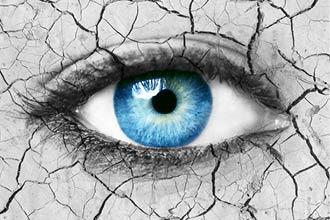- A-
- A+

Dry eye syndrome can be caused by many different factors, and, in most cases, requires treatment by eye drops which can be of various types – lubricating, hydrating, mucoadhesive. Théa has acquired immense experience in this domain with the development of a full range of products for lachrymal substitution, all preservative-free, in either single dose units or ABAK multi-dose bottles.
It has been shown that the use of preservatives should be avoided as they have harmful effects on the eyelids, the ocular surface and the quality of tears.
What is dry eye? Definition
Dry eye, also known as dry eye syndrome, is a chronic irritation of the ocular surface as a result of anomalies in tear quantity and/or composition.
What are the symptoms of dry eye? Symptoms
The symptoms of dry eye are not specific and may also be encountered during allergies or eye infections...
What are the causes of dry eye? Causes
Certain circumstances are accompanied by a reduction in the production of tears. Others promote the evaporation of tears1 in particular inflammation, which can damage the Meibomian glands and mucus cells.
How to treat dry eye ? Treat
If you have symptoms on the ocular surface, it is essential to consult an ophthalmologist who is the only person who can make the diagnosis by using specific tests and who will prescribe the best treatment.
Ocular dryness and extended work on a screen Dry eye and working on a screen
Due to your profession, you find yourself obliged to spend several hours in front of your computer screen. Lately, you have been feeling a tingling sensation in the eyes. Your eyes water, your vision clouds, becoming blurred at times, and you rub your eyes unnaturally. These events may be related to prolonged exposure to your screen. You probably suffer from what doctors call "the dry eye syndrome".
Reduce mask-related dry eye syndrome Dry eye and face masks
The Covid-19 epidemic, has considerably increased and generalized the use of surgical masks among the population. More and more people are forced to wear masks outdoors, in their work environment, on public transport and in shops, to protect themselves and others and to limit the spread of the virus. Wearing a mask on a daily basis can cause dry eyes or even aggravate pre-existing dry eyes condition. A poorly positioned mask can explain this phenomenon, which is not inevitableWearing a mask can cause or worsen dry eye syndrome.



